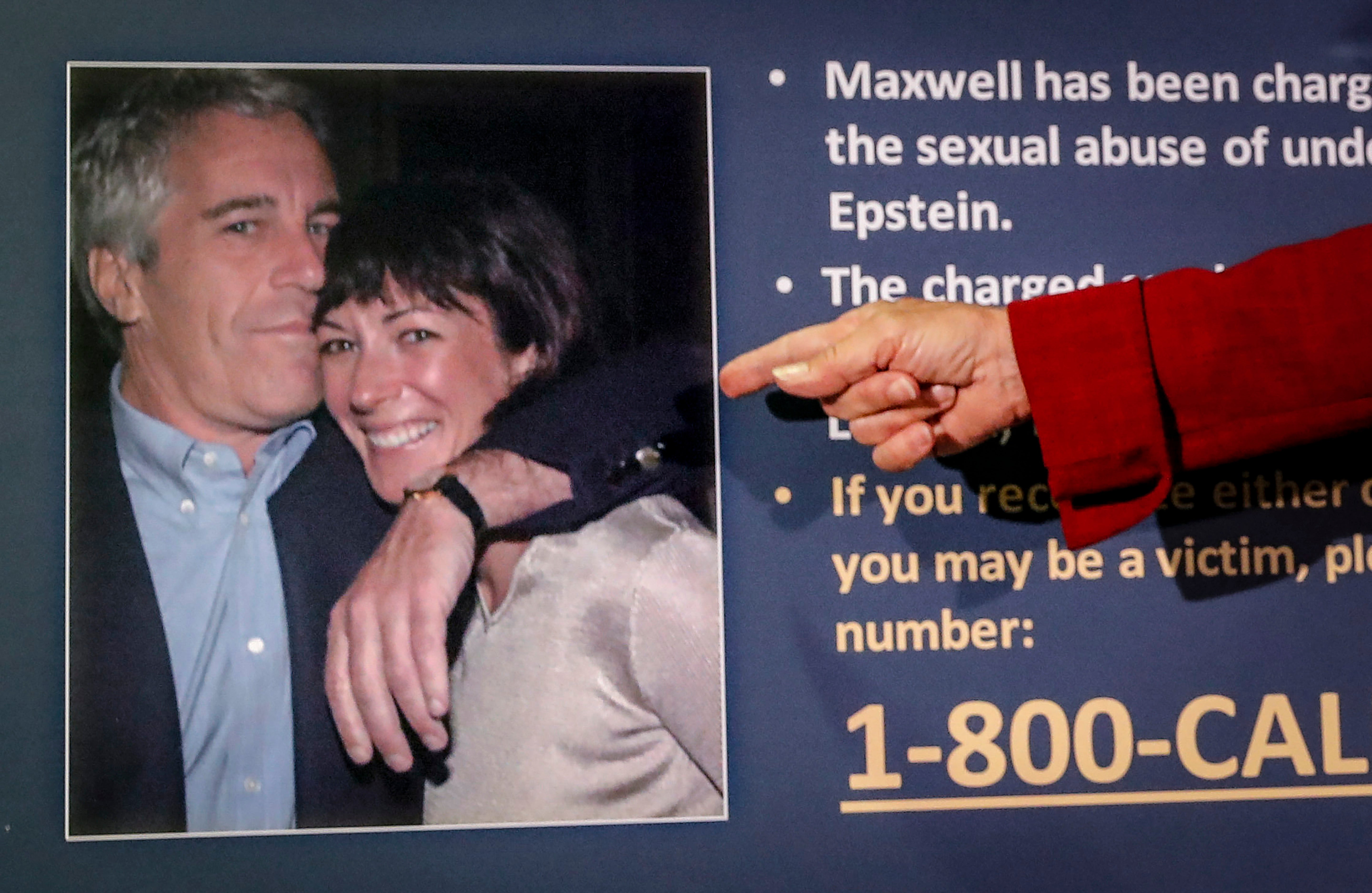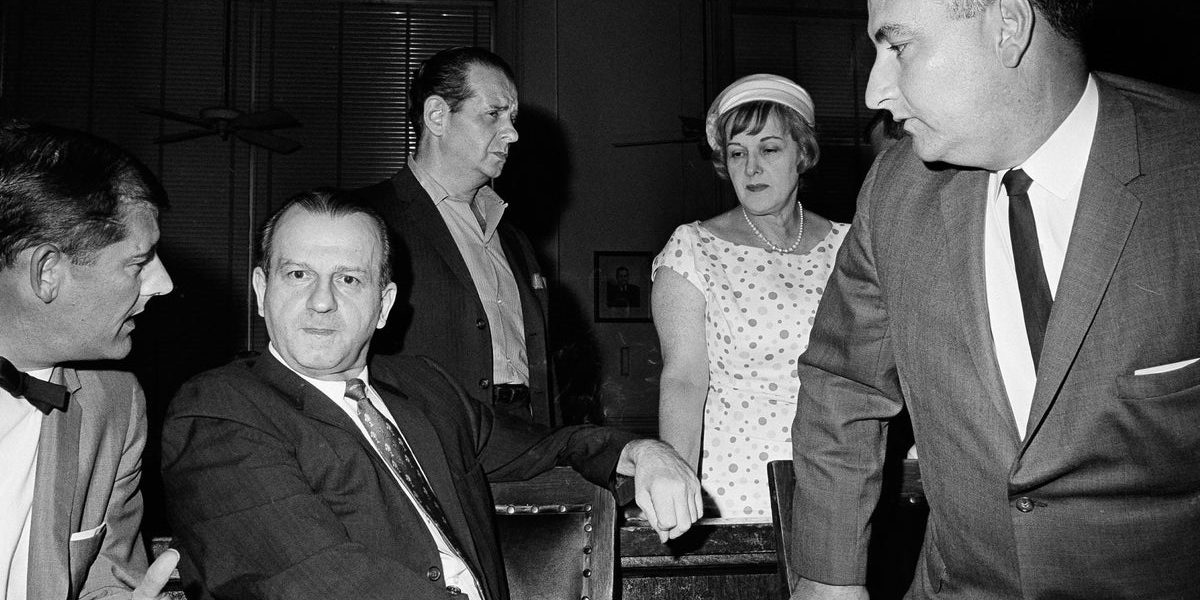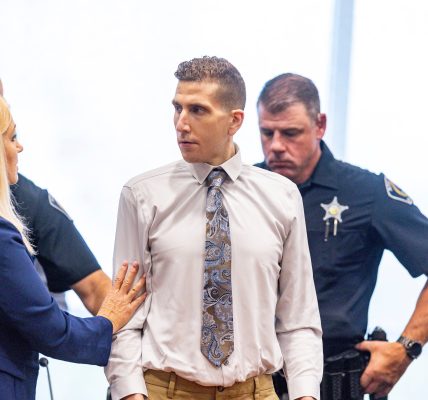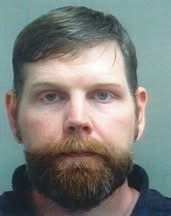Ghislaine Maxwell, currently serving a lengthy prison sentence for her role in Jeffrey Epstein’s sexual abuse of underage girls, is poised to be subpoenaed by the US Congress for controversial testimony.
Should these efforts prove successful, Maxwell would join a notable list of individuals – ranging from mafiosos to white-collar criminals – who have used congressional testimony post-conviction to reshape political narratives and their own public standing.
The calls for Maxwell’s public interrogation come three years into her 20-year sentence for sex trafficking, conspiracy and transportation of a minor for illegal sexual activity. Maxwell’s crimes have been thrust into the spotlight again as pressure mounts for President Donald Trump and the Department of Justice to release information about Epstein’s crimes, which are shrouded in conspiracy theories that the president himself once touted.
Epstein killed himself while awaiting trial in 2019, but his case has generated endless attention and conspiracy theories because of his and Maxwell’s links to famous people, including royals, presidents and billionaires.
Maxwell, for her part, has always maintained her innocence.

Recently, the Trump administration has promised “to release all credible evidence” about the Epstein case. His efforts ran into a roadblock when a judge on Wednesday rejected a Trump administration request to unseal transcripts from grand jury investigations of Epstein years ago in Florida — raising the stakes even higher for Maxwell’s testimony.
Here is a look at the history of explosive congressional testimony from powerful people convicted of serious crimes.
It is not the first time in recent years that Congress has summoned someone convicted of a crime to investigate allegations that involve the president.
As recently as 2019, Trump’s former personal attorney Michael Cohen cast the president as a racist conman in testimony to Congress, shortly after Cohen was sentenced to a three-year prison sentence for campaign finance violations, tax fraud and bank fraud.
Cohen accused Trump, then in his first term, of using his inner circle to cover up politically damaging allegations about sex with a porn actress, and of lying throughout the 2016 election campaign about his business interests in Russia.
Michael Milken, 1993
Wall Street figure Michael Milken was able to rehabilitate his tarnished reputation in 1993, less than a year after he was released from prison for violating U.S. securities laws by selling junk bonds. In fact, he was later celebrated for talking about ways to increase investment in urban areas in his testimony before the Congressional Black Caucus, according to the Washington Post’s reporting at the time.
It was the second time that Milken was asked to testify in front of Congress: the first time was in 1990, when he invoked the 5th Amendment to avoid answering questions about his fraud schemes.
Milken was granted clemency in 2020 by Trump during his first term.
Decades before the Epstein case, Congress sought to clarify rampant conspiracy theories about the assassination of John F. Kennedy.
In 1964, a seven-man commission went to the Dallas County Jail to interview Jack Ruby, the man who was sentenced to death for killing Lee Harvey Oswald after Oswald shot Kennedy.
The commission interrogated Ruby about his political affiliations and motivations for killing Oswald, according to records from the National Archives.
The interview with Ruby led the commission to conclude that Ruby acted alone in killing Oswald, according to the National Archives, despite widespread rumors that the murder was part of a cover-up.
Joseph Valachi, 1962
In the 1950s and 1960s, Congress formed numerous committees to investigate the mafia and it’s influence on government.
In 1962, member of the Genovese crime family Joseph Valachi became the first mobster to publicly acknowledge the existence of the American mafia, according to the Levin Center for Oversight and Democracy. Broadcast to millions watching televisions across the country, Valachi captivated public attention with graphic details about the crimes he had committed.
Valachi’s criminal record was extensive: When he testified before Congress, he was facing a life sentence for killing someone in prison while he was serving a 15-year sentence for drug trafficking. He arrived at the Capitol building guarded by 200 U.S. Marshals, as rumors circulated that the mobster Vito Genovese was offering $100,000 for Valachi’s execution.
Congress’ fixation on organized crime at that time inspired a major plot point in the 1972 movie “The Godfather Part Two,” when Michael Corleone insists on his innocence in a trial before the Senate.





